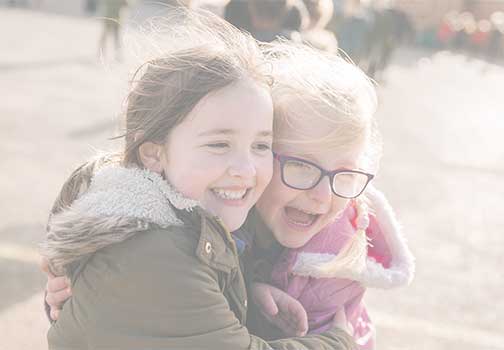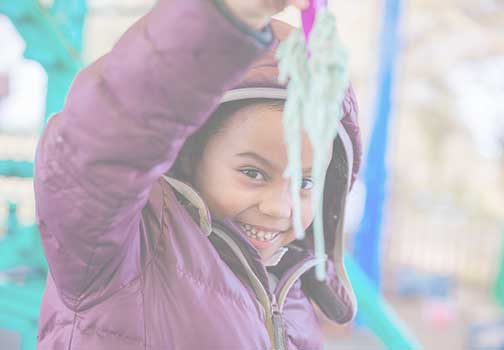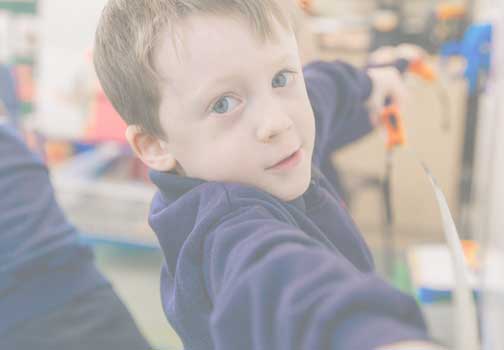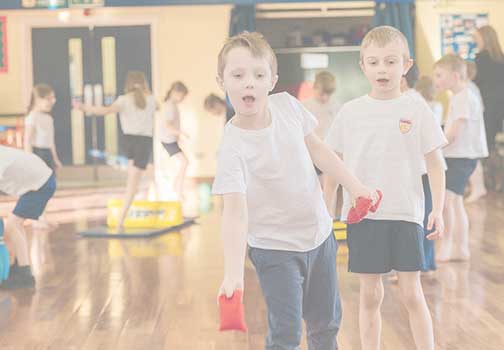PSHE
Intent
Our SMSC curriculum will encourage mutual respect, responsibility and foster self-esteem in a happy and caring atmosphere. We believe that children are all individuals and this will be promoted through discussion and encouragement of tolerance. We want our children to have high aspirations, a belief in themselves and to realise that anything is possible if they put their mind to it.
Our PSHE curriculum develops learning and results in the acquisition of knowledge and skills which will enable children to access the wider curriculum and prepare them to be a global citizen now and in their future roles within the global community. It promotes spiritual, moral, cultural, mental and physical development of pupils, preparing them for the opportunities, responsibilities and experiences for later life. Our relationships and sex education enables our children to learn how to be safe, and to understand and develop healthy relationships, both now and in their future lives.
When children leave Capel they will do so with the knowledge, understanding and emotions to be able to play an active, positive and successful role in society.
Implementation
Pupils at Capel Primary School are taught using the ‘SCARF’ scheme of learning which is a spiral, progressive scheme of work. This learning takes place alongside our day to day classroom provision which supports children in knowing and valuing who they are and helps them to understand how they relate to other people. There is a strong emphasis on emotional Literacy, building resilience and nurturing mental and physical health. As a school we use the ‘zones of regulation’ as support for this in every classroom. We monitor every child’s wellbeing and involvement regularly using the ‘Leuven Scale’ and follow our wellbeing tier system, as found in our wellbeing policy.
PSHE is taught through SCARF’s six half termly themes with each year group studying the same unit at the same time, at their own level.
Our topics are:
Autumn 1: Me and my relationships
Autumn 2: Valuing difference
Spring 1: Keeping safe
Spring 2: Rights and respect
Summer 1: Being my best
Summer 2: Growing and changing
Please see the PSHE progression map on the ‘Curriculum’ page on our school website to find out more about progression within these areas across the school.
It also identifies links to British Values, and SMSC and is taught in such a way as to reflect the overall aims, values and ethos of the school.
At Capel, in addition to Relationships Education, we also teach aspects of Sex Education. For further information on our RSE curriculum please see below. Alongside this we teach about different kinds of relationships, including same sex relationships and gender identity because it is important that our children should have an understanding of the full diversity of the world that they live in and be prepared for modern life in Britain. The sex education aspects of PSHE are also taught through the SCARF programme of study.
Impact
By the time our children leave Capel they will:
- Know tools and skills to support their own and other’s health and wellbeing
- Be able to understand and manage their emotions
- Recognise and apply British values
- Appreciate difference and diversity
- Be on their way to becoming healthy, open minded, respectful, socially and morally responsible, active members of society
- Be able to approach a range of real life situations and apply their skills and attributes to help navigate themselves through modern life
- Understand the physical aspects involved in RSE at an age appropriate level
- Have respect for themselves and others
- Have a positive self-esteem
- Be able to develop positive, healthy relationships with their peers both now and in the future
Beyond lessons, our pupils SMSC education extends to:
- Whole school assemblies and weekly celebrations
- Residential experience for our year 6 cohort
- Christmas and Harvest celebrations with our community
- Wellbeing week - use of gratitude boxes, secret kindness agents and a whole school assemblies
- Termly leuven assessments for all pupils to ensure that class teams are supporting wellbeing and involvement needs in their class
- Enrichment days - opening up our pupils' minds to try new things.
- Regular practising of mindfulness
- Charitable projects - we support local, national and global projects
- Anti-Bullying Alliance bronze award
- Regular school council meetings so our children can share their ideas with us about school improvement
- Anti-bullying days – spread throughout the year to maintain focus where we teach pupils how to recognise and deal with bullying in our curriculum
- A ‘child friendly’ adapted version of our anti-bullying policy, written by our children
- Sports competitions against local schools
- Buddies for new pupils - Reception pupils and in-year transfer pupils are given a buddy to help them settle in
British values at Capel Primary School
At Capel we actively develop and promote British values throughout our school and our curriculum.
In accordance with the Department of Education we aim to ensure that young people leave school prepared for life in modern Britain. Pupils are encouraged to regard people of all faiths, races and cultures with respect and tolerance and understand that while different people may how different views, all people living in England are subject to its law.
The Key British Values are:
· democracy
· rule of law
· individual liberty
· mutual respect
· tolerance of those of different faiths and beliefs
To do this our children will develop;
- · An understanding of how citizens can influence decision-making through the democratic process
- · An understanding that the freedom to hold other faiths and beliefs is protected in law
- · An acceptance that people having different faiths and beliefs to oneself (or having none) should be accepted and tolerated, and should not be the cause of discriminatory behaviour
- · An understanding of the importance or identifying and combating discrimination
The mission statement and aims of the school clearly reflect these values, and the whole school strives to uphold them.
We actively promote British values through focusing on and showing how the school’s work is effective in securing these values and challenging those who express opinions contrary to British values. Our work to promote pupils’ (SMSC) development - including work on citizenship and community cohesion, anti-bullying learning, equalities and diversity work - ensures we meet the government’s requirements to teach fundamental British values.
Values education does not only act as a preventative measure against radicalisation and extremism, but is also a vital part of preparing children to get on in life, creating critical thinkers and active citizens who respect others and challenge prejudice and discrimination.
Democracy – what do we do?
- · School campaign and election at the beginning of the year for head boy and head girl;
- · Class voting for the school councillors at the beginning of the year;
- · An active school council that is headed by our head boy and head girl;
- · Provide pupils with a broad general knowledge of, and promote respect for, public institutions and services;
- · Teach pupils how they can influence decision-making through the democratic process;
- · Taught through assemblies and our school curriculum;
- · Teach dedicated focus on democracy in Britain as part of our PSH curriculum
- · Encourage pupils to become involved in decision-making processes and ensure they are listened to in school;
- · Help pupils to express their views through systems such as ‘I wish my teacher knew’ boxes and ‘I wish my headteacher knew’;
- · Model how perceived injustice can be peacefully challenged;
- · Pupils actively included as part of our SDP development – this is discussed and shared regularly as part of assemblies and day to day teaching
Rule of law – what do we do?
- · Ensure that our 3 school rules and expectations are clear and fair;
- · Class rules and celebration of adhering to these rules through postcards home, Dojo points and each class recognition board;
- · Help and teach, as part of our PSHE curriculum, how to distinguish right from wrong;
- · Each class to have a term long PSHE project on ‘rights and respect’ which supports children with respecting the law and understanding that living under the rule of law helps to keep us safe;
- · Exploring as part of our PSHE lessons and day to day teaching what to do if peer pressure is trying to persuade children to break rules and laws;
- · Refer to the Equality Act 2010 as part of our anti-bullying policy and education;
- · Visit from a charity organisation to talk about knife crime with year 6
Individual liberty – what do we do?
- · Support pupils to develop their self-knowledge, self-esteem and self-confidence;
- · Use and teach the zones of regulation across the school as a support for children in taking responsibility for their own behaviour;
- · Model freedom of speech through pupil participation, while ensuring protection of vulnerable pupils;
- · Challenge stereotypes;
- · Implement a strong anti-bullying culture;
- · E-safety units taught alongside support shared with parents and our e-safety yr6 ambassadors
Mutual respect and tolerance of different cultures and religions – what do we do?
- · Use the 2010 Equality Act to promote respect for individual differences and to actively challenge stereotypes;
- · Use whole school and class assemblies to explore critical news events;
- · Explore positive role models (where possible) through our class ‘project’ focuses;
- · Challenge prejudicial or discriminatory behaviour;
- · Organise visits to places of worship;
- · Actively encourage celebrations from different religions and cultures throughout the school year, such as Diwali, Chinese New Year and Christmas;
- · Our RE scheme, the Kent Agreed Syllabus, ensures that our children have a good understanding of a range of religious beliefs and customs;
- · Help pupils to acquire an understanding of, and respect for, their own and other cultures and ways of life
Useful links
Think You Know – Online protection for children (KS1)
RSE - What we teach and when we teach it
Class 1 visit our local church!
Class one spent the afternoon visiting Thomas a Becket Church, and were amazed to find out the church is over 900 years old. They had a talk about the important features of the church, naming the Nave and Alter and spotting all the crosses. They then had to use a compass to find out the direction that the church faces. They found out that all churches face to the East. The children looked at all the paintings on the church wall and talked about the Easter story. They even acted out the story for Palm Sunday and used some small palm leaves. Then we had some little bags of different scents to smell that are related to the Easter story, including Sandalwood and Jazmine.



















